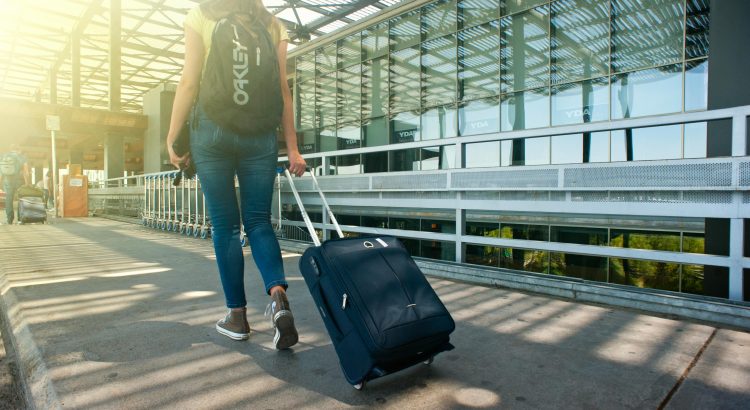Whether attending conferences, collaborating on research or just sightseeing, travelling abroad can be an enriching experience. However, it also exposes you to unique cyber security risks. This month, we’ll explore how to keep your digital assets safe and secure while travelling internationally.
What Are the Cyber Security Risks When Travelling Abroad?
- Device Theft: Opportunistic thieves can target your devices, especially in busy areas like airports and train stations. A moment of distraction is all it takes for your laptop or mobile phone to be stolen.
- Unsecured Wi-Fi Networks: Public Wi-Fi networks, particularly in hotels, cafes, and airports, can be hotspots for cyber criminals. They can intercept data transmitted over these networks, potentially accessing sensitive information.
- Malware and Spyware: Devices connected to unfamiliar networks may be more susceptible to malware and spyware. In some countries, officials may tamper with devices, installing malicious software to monitor your activities.
- Data Interception and Surveillance: Certain countries may actively monitor and intercept digital communications. This includes emails, messages, and any data transmitted over the internet.
How to Protect Your Devices and Data
Before You Travel
1. Travel Light with Data: Only take the files you absolutely need. Avoid carrying sensitive or non-public data on your devices.
2. Use Loan Devices: Consider using a newly installed, encrypted “loan” laptop or mobile device. Depending onthe device encryption policies of the country you’re visiting, you might opt for a non-encrypted loan device instead.
3. Secure Devices: Ensure all devices are secured with strong passwords and biometric locks. Enable remote wipe functionality to erase data if your device is lost or stolen.
4. Update Software: Make sure all operating systems, applications, and security software are up-to-date with the latest patches and updates.
5. Backup Your Data: Backup all important data to a secure cloud service like OneDrive. Avoid having the only copy of any data on the device you’re taking with you.
During Your Trip
6. Install Security Tools: Use reputable anti-virus and anti-malware software. Consider using a VPN (Virtual Private Network) provided by the University of Stirling for secure connections.
1. Keep Devices with You: Never leave your devices unattended. If you must leave them behind, ensure they are locked in a secure place.
2. Be Cautious with Public Wi-Fi: Avoid using public Wi-Fi networks for accessing sensitive information. If you must use them, connect through a VPN to secure your data.
3. Beware of Free Charging Stations: Free charging stations in public places can be tampered with to steal data from your device. Use your own charger and avoid connecting to unknown USB ports.
4. Monitor Your Devices: If your device is taken out of your sight, even briefly, consider it compromised. Check for any signs of tampering or unauthorized access.
5. Avoid Software Downloads: Do not download or install any software while abroad. This can reduce the risk of downloading counterfeit or malicious software.
6. Limit Access to Sensitive Services: Avoid accessing sensitive University services or emails while on unsecured networks. Use secure remote access technologies if absolutely necessary.
After Your Return
1. Check for Interference: Assume your device might have been compromised. Run a full malware scan and follow any steps to clean your device.
2. Reset Passwords: Change passwords for all accounts accessed during your trip. This includes university accounts, email, and any other services.
3. Erase Temporary Devices: For loan devices, ensure they are securely erased and reset by Information Services upon return.
4. Seek Support: If in doubt, seek advice from the Information Centre either in the Library or by emailing information.centre@stir.ac.uk. They can assist with scanning, cleaning, and securing your devices.
And don’t forget, staff and students at the University of Stirling can access our free cyber security awareness training, available through the Metacompliance app: universityofstirling.metacompliance.com/
Happy travels!
See the previous posts in this series:
October 2023 – Introduction to Cyber Security
November 2023 – Types of Cyber Security Threats
December 2023 – Social Engineering Threats
January 2024 – Phishing – Don’t Fall Prey
February 2024 – Strong Passwords – Protect your digital fortress
March 2024 – Mobile Device Security
Internet Browsing – Secure your digital life while surfing the open ocean
